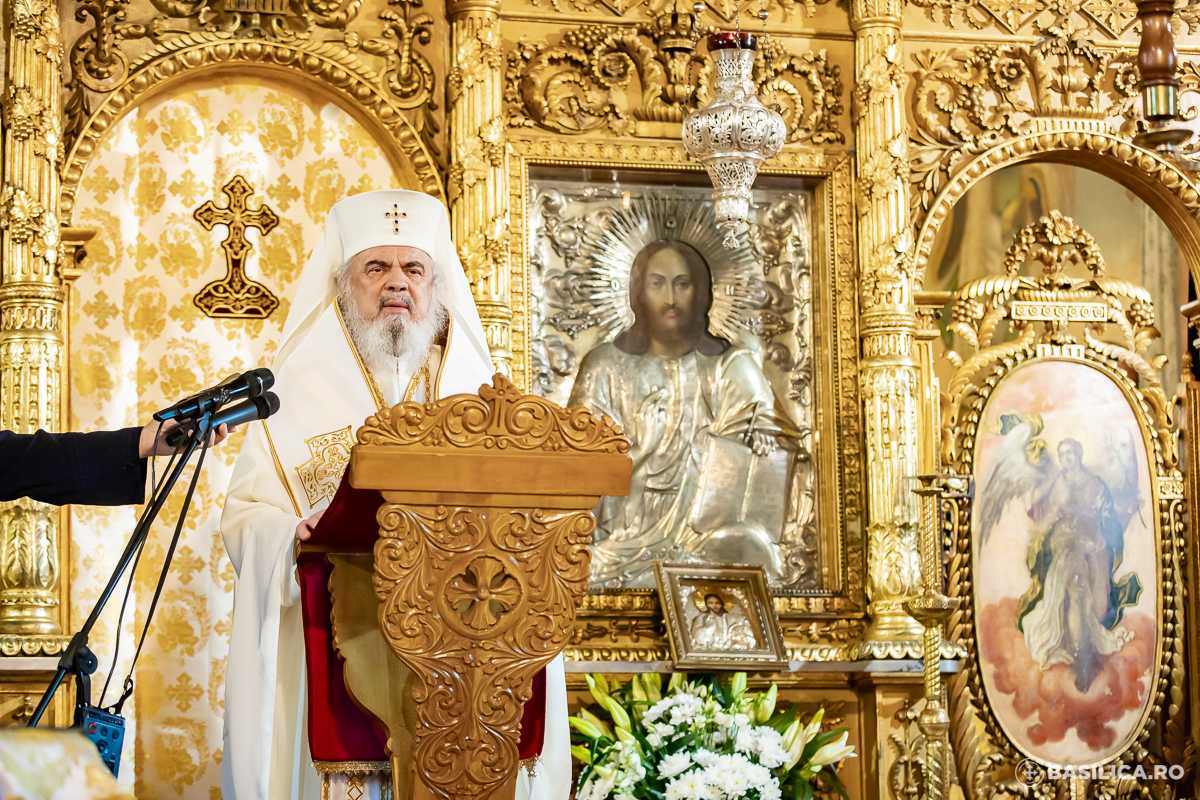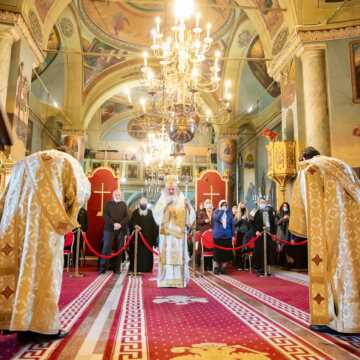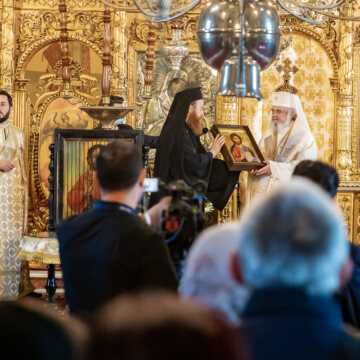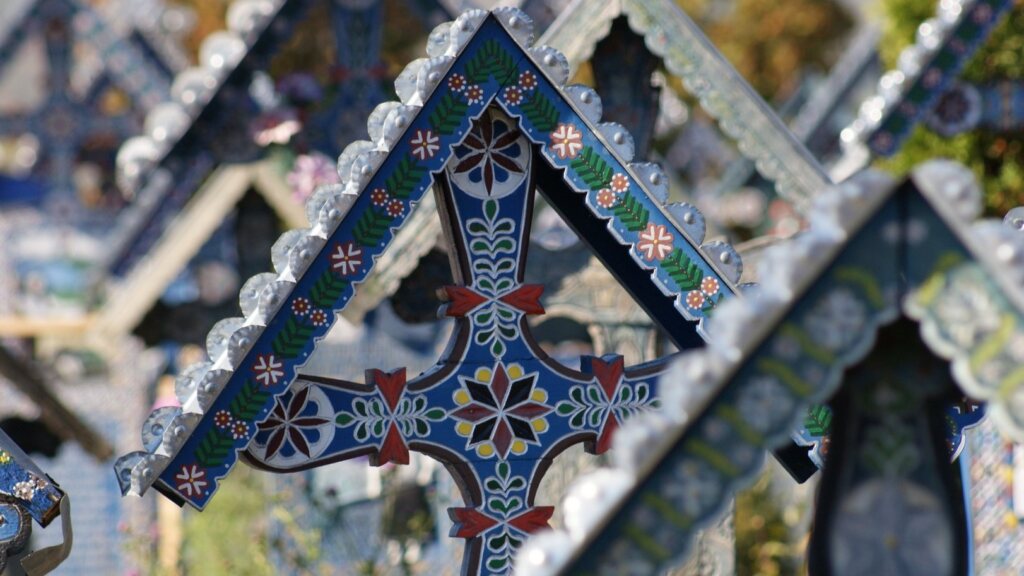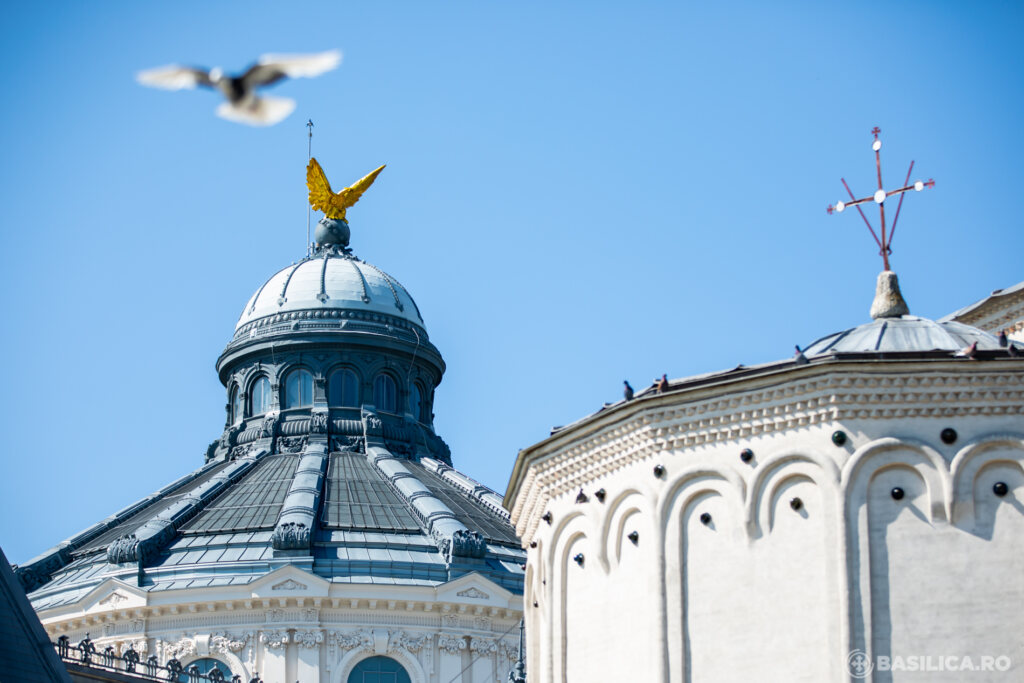“He was a prayerful and merciful Saint and a wonderworker during his lifetime, as he healed many sick people,” Patriarch Daniel said about Saint Callinicus on his feast day at Cernica Monastery.
Saint Callinicus is one of the patron saints of the monastic settlement near Bucharest.
Saint Callinicus of Cernica
In his speech on Sunday, April 11, 2021, the Patriarch of Romania called St. Callinicus “a teacher of unceasing prayer.” Regardless of his activity, the saint kept saying the Jesus Prayer: Lord, Jesus Christ, Son of God, have mercy on me, the sinner.
“He was not only a man of prayer but also of action. He was an excellent spiritual father and at the same time a very fierce abbot.”
“He was appreciated by the ruler prince of Wallachia, Barbu Știrbei, who insistently asked him to accept to be bishop of Râmnic, because the Diocese of Râmnic was in a difficult condition,” Patriarch Daniel stressed.
He predicted the day he would die
Fourteen days before passing to the Lord, he predicted the day he would die, namely, April 11, 1868, on Holy Saturday. “He asked to be buried in the porch of Cernica monastery’s church, which he founded.”
For his holy life, Patriarch Justinian Marina proposed in 1950 to the Holy Synod that Saint Callinicus be canonized. “The proclamation of canonization took place in 1955. Then his bones became relics and were moved from the church porch inside the church.”
Recalling the popularity of Saint Callinicus, the Romanian Patriarch said that the saint was “an icon of Romanian monasticism.”
“We consider that he is also a model of a good Romanian. He was a supporter of the Union of Romanian Principalities; he valued education and culture,” His Beatitude Patriarch Daniel said.
The Patriarch asked Saint Callinicus of Cernica “to give us his strong faith, love for Christ, the Church and the Romanian people.”
St. John Climacus
On the fourth Sunday of Lent, the Church commemorates Saint John Climacus, famous for his “Ladder of Divine Ascent”, which is considered a spiritual life textbook.
“For centuries, it was read in monasteries for the guidance of monks, but then it began to be read by believers and laypeople who fast and pray a lot,” Patriarch Daniel noted.
“He shows us how people can free themselves from selfish passions and how they can acquire virtues, and essential virtues in his book are humility and love. The more spiritual man becomes, the more humble he becomes. For humility is the valid proof of holiness.”
“A holy man hides his virtues, is discreet, considers himself more sinful than others, and has humble and merciful love. He is generous and forgiving and kind, as the Saviour Christ asks: Be merciful, just as your Father is merciful (Luke 6:36).”
Prayer and fasting
The Patriarch of Romania also offered his reflections on the Sunday gospel passage about the Healing of the Lunatic Child (Mark 9:17-32), focusing on the importance of prayer united with fasting.
“When a person fasts, he humbles himself and can concentrate more while praying to God. They turn physical hunger and thirst into hunger and thirst for God.”
“When man fasts and prays humbly, then he is no longer full of himself, of the selfish spirit of the self, but through prayer is filled with the Holy Spirit.”
“And because the Holy Spirit comes in the person who prays fervently in a state of fasting and humility, unclean spirits are afraid of the presence and work of the Holy Spirit in the humble person.”
“Therefore, these spirits go out from the possessed man. Unclean demons fear only the Holy Spirit who dwells in humble and praying people. They are unclean and evil, and the Holy Spirit is the pure, holy and good Spirit,” Patriarch Daniel explained.
The Divine Liturgy on the feast day was celebrated by His Grace Patriarchal Auxiliary Bishop Varlaam of Ploieşti.
Photography courtesy of Basilica.ro / Mircea Florescu
Follow us on Twitter: @BasilicaNews
